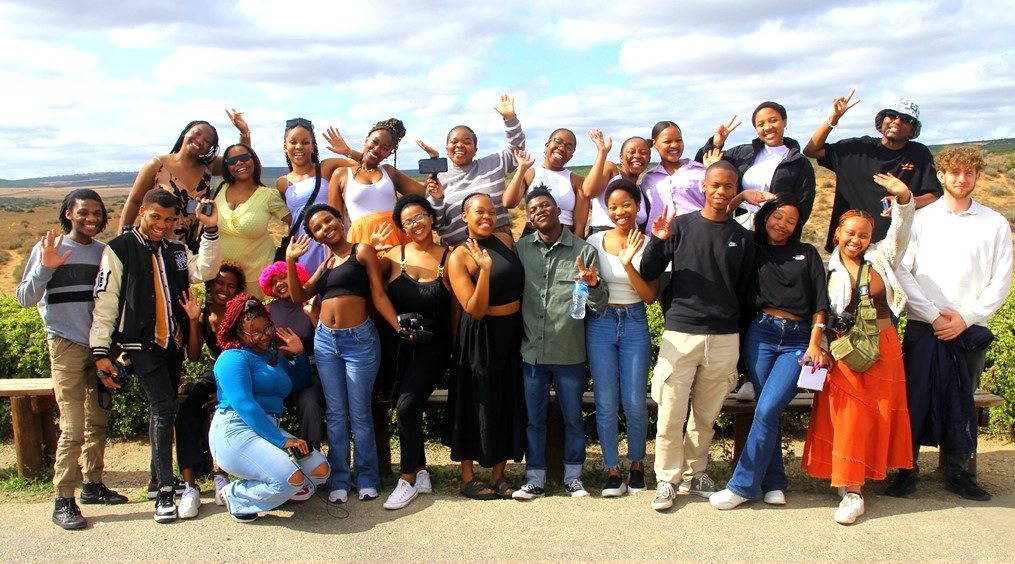By Steven Lang
Can you really mix business and pleasure? Well if the business is educational, and the pleasure is a trip to the Addo Elephant Park, you most certainly can. That is what a group of 24 Rhodes University students set out to achieve last Saturday.
The third-year audio journalism class left the Journalism and Media Studies building in two minibus vehicles just after six o clock in the morning. Singing at the top of their voices for one-and-a-half hours all the way to the Main Camp showed their excitement. For most people in the group, it was their first ever visit to a national game reserve.
As soon as the paper work was done at reception, the class headed off to the Interpretive Centre where Rosslee Wagenaar gave a brief presentation providing students with some background to the park.
The Interpretive Centre, which was opened in 2011, is designed to help visitors understand not only the animals in the park but also the different biomes, cultural context and history of how the Addo Park came to be.
Journalism students were naturally curious about all aspects of the park, so they asked many questions but most were focused on what type of measures park management is taking to stop poaching.
Wagenaar told them how the operations of the Anti-Poaching Unit have been largely successful in protecting the park’s wildlife. Members of that unit not only have to worry about poachers hunting for rhino horns and bush meat, but also the illegal harvesting of indigenous plants.
Leaving the Main Camp behind, the two minibuses were on the road with all eyes on the lookout for game. The first sightings were of a small herd of Burchell’s zebras near the Domkrag water hole. Some of the students were interested to find out that there are several different species of zebras, but that only the Burchell’s, or plains zebra, is found in the main section of the park.
The Burchell’s zebra can easily be identified by its ‘shadow’ stripes interspersed between the black stripes.
The highlight of the first hour or so was a brief sighting of two jackals that ran across the road. There were plenty of zebras, some red hartebeest and warthog families, but the group had to drive on for a good few kilometres before the first elephant came into sight.
Not surprisingly, that first young bull was spotted at the Hapoor water hole – the most reliable place to see elephants in Addo. It is amazing how sometimes it can be difficult to spot an elephant in a park that carries over six-hundred of these majestic animals.
The youngster appeared skittish, perhaps because he was young and alone. He did not want to share the artificial pan next to the waterhole with a pair of thirsty zebras. He chased them away every time they tried to quench their thirst.
Driving further along Mpunzi Loop the Rhodes students saw many more elephants as they walked towards Hapoor. The small herds, consisting mainly of cows and their calves, kept closely together as their mothers and older sisters did not allow the younger calves to wander off.
Jack’s Picnic spot was a great place for the students to have their packed lunches, stretch their legs and have a bathroom break.
On the road again, there were more elephants, zebras, kudus, hartebeest and the ever present warthogs. One of the vehicles drove off ahead and so did not spot the lone male buffalo lurking in the bushes – which made it two of the big five.
The students were disappointed that they had not been able to spot lions, but the WhatsApp Sightings group had not shown any big cat sightings the whole day. They had probably consumed a big meal and were digesting under a bush somewhere. It may be frustrating, but it’s something to look forward to next time.
The field trip concluded with a brief stopover at the Sunday’s River mouth near Colchester where everyone could paddle around and feel beach sand between their toes.
The ride back to Makhanda was much quieter than the morning journey as most were tired and slept on the way back.


